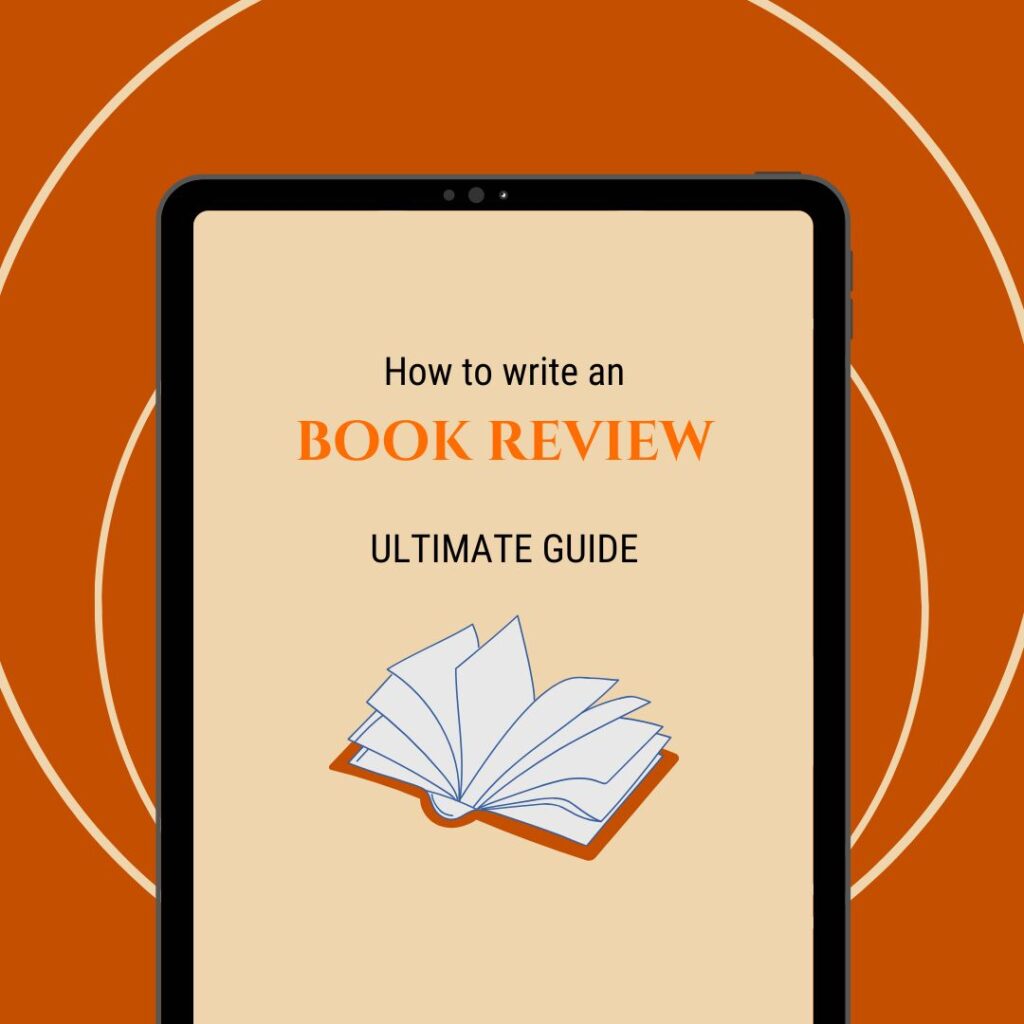How to write a book review
Understanding a book review
- Book reviews serve as critical evaluations of a literary work, offering insights and opinions to prospective readers.
- Readers turn to book reviews for guidance on whether a book aligns with their interests and preferences.

Table of Contents
Importance of writing a book review
- Book reviews play a crucial role in the literary world, helping authors gain recognition and book sales.
- They allow readers to engage in meaningful discussions around a book’s content and themes.
Benefits of writing a book review
- Writing book reviews enhances critical thinking skills by analyzing and evaluating a text comprehensively.
- Book reviewers contribute to the cultural dialogue, influencing reading choices and shaping literary landscapes.
Preliminary Steps Before Writing a Book Review
Choosing the book
Selecting the genre, author, and title: Choose a book that aligns with your interests and expertise in a particular genre or author’s style.
Reading the book
- Active reading: Engage with the text actively by making notes, highlighting passages, and jotting down thoughts.
- Make notes: Record key quotes, themes, and character developments to reference later in your review.
- Bookmarking important points: Use bookmarks or digital markers to identify crucial sections for discussion.
Understanding the book
- Identifying key themes: Explore the central ideas and motifs that drive the narrative forward.
- Author’s perspective: Consider the author’s background, intentions, and unique voice in shaping the book.
- Characters: Analyze the protagonists, antagonists, and supporting characters to understand their roles and development.
Organizing your points
- Structuring your thoughts: Create a coherent outline that outlines the main aspects you want to cover in your review.
- Creating an outline: Divide your review into sections such as summary, analysis, and evaluation to ensure a structured approach.
Structuring a Book Review
The Title
Developing a compelling title that encapsulates the essence of your review and intrigues potential readers.
Introduction of the book
Briefly introduce the author, title, genre, and overarching theme of the book to set the context for your review.
Summary of the book
Provide a succinct overview of the plot without revealing major spoilers, outlining the central storyline and conflicts.
Analysis & Evaluation
Share your critical insights and opinions on the book’s strengths, weaknesses, and overall impact on the reader.
Essential Elements of a Book Review
Plot Summary
Importance of a plot summary: Providing a concise overview of the storyline sets the context for readers and helps them understand the narrative flow.
Character Analysis
Importance of analyzing characters: Delving into the characters’ traits, motivations, and growth enhances the reader’s understanding of the story and its themes.
Your Opinion
How to express your perspective: Sharing your thoughts, feelings, and critical insights on the book allows readers to gauge your subjective interpretation.
Conclusion
Tying it all together: Summarizing key points, conclusions, and recommendations in a cohesive manner brings closure to the review.
Writing a Professional Book Review
Writing with Clarity
Being clear and precise in your writing conveys your thoughts effectively and ensures that readers grasp your viewpoints easily.
Being Unbiased and Fair
Offering a balanced view by acknowledging both strengths and weaknesses of the book enhances the credibility and fairness of your review.
Keeping it Engaging
Holding readers’ interest by incorporating engaging language, vivid descriptions, and compelling arguments makes your review captivating and enjoyable to read.
Proofreading and Editing
Reviewing and refining your write-up through thorough proofreading and editing enhances the quality and professionalism of your book review.
Tips and Tricks for Effective Book Reviewing
Reading Multiple Reviews Beforehand
Learning from others’ experiences by reading various reviews can provide insights, different perspectives, and valuable approaches to reviewing books.
Avoiding Spoilers
Keeping the suspense and surprises intact for new readers by refraining from revealing crucial plot twists or endings in your review maintains the book’s intrigue and allure.
Review Examples and Practicing Review Writing
Studying Examples of Well-Written Reviews
Analyzing well-crafted reviews helps to understand effective writing styles, structural elements, and critical analysis approaches that can be applied to enhance your own reviews.
Practicing to Write Reviews
Regularly practicing writing book reviews hones your analytical skills, improves your writing proficiency, and allows you to develop your unique reviewing style and voice.
FAQs on How to Write a Book Review
Q1: What are the key steps to writing a book review?
To write a book review, you should start by choosing a book that interests you, actively read it, identify key themes, and organize your thoughts before structuring your review.
Q2: How important is the plot summary in a book review?
The plot summary helps provide readers with a brief overview of the book’s storyline without giving away spoilers. It is essential in helping readers understand the context of your review.
Q3: What should be included in the character analysis of a book review?
Character analysis involves delving into the personalities, motivations, and developments of the characters in the book. It allows readers to understand the relationships and dynamics within the story.
Q4: How can I ensure my book review is unbiased and fair?
Maintaining objectivity in your book review involves presenting both the strengths and weaknesses of the book, providing evidence to support your opinions, and acknowledging different perspectives.
Q5: What are some tips for writing engaging book reviews?
To keep readers engaged, focus on writing with clarity, incorporating your unique perspective, avoiding spoilers, and providing a compelling conclusion that ties all your points together.
Conclusion
When writing a book review, remember that your analysis, critique, and evaluation can help readers determine whether the book aligns with their interests. By following the essential steps and incorporating key elements, you can craft insightful and engaging reviews that provide valuable insights for fellow book enthusiasts.
Discover marketing services, interviews & publishing tools at SharingStories.



